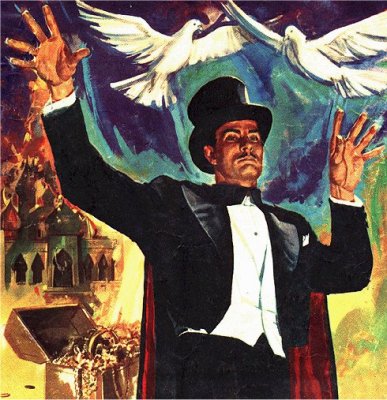Easter: The Pagan Conspiracy
 I meant to write this post in the weeks leading up to last Easter, but I’m afraid it completely slipped my mind. Unfortunately, this meant that when Easter Sunday rolled around and all the “Easter is a pagan festival!” comments started to appear on Facebook and on blogs, I was repeatedly forced to write some off-the-cuff comments in response, rather than having something prepared here to which I could link.
I meant to write this post in the weeks leading up to last Easter, but I’m afraid it completely slipped my mind. Unfortunately, this meant that when Easter Sunday rolled around and all the “Easter is a pagan festival!” comments started to appear on Facebook and on blogs, I was repeatedly forced to write some off-the-cuff comments in response, rather than having something prepared here to which I could link.
I was reminded that I had intended to do this post a couple of days ago while reading an article in the Telegraph. The article in question was talking about how the Church of England has plans to create a new Pagan church to attract new people . Inter-faith dialog is one thing, but this sounds like something quite different. I’m intrigued as to what this’ll end up looking like. We’ll just have to wait and see…
So, I know Easter Sunday has long since passed. In fact, Pentecost has also been and gone and we’re even nearing the end of the Apostles’ Fast. However, I’ve decided to write a quick blog entry here in preparation for next year so that when we’re in the run up to Easter I’ll be ready 🙂
A festival by any other name…
The main thrust of most the comments I saw this year was over the word “Easter” itself. It was pointed out, ad nauseam, that the word “Easter” is most likely etymologically related to the word “Eostre”, a Germanic deity from paganism. The “logic” goes that, since the word “Easter” has pagan roots, the celebration itself must also be pagan. Makes sense, right? Err….no.
I’ll admit that when I see such comments I get a little irritated because I don’t think they’ve really thought through what it is that they’re saying nor have they applied their position consistently.
